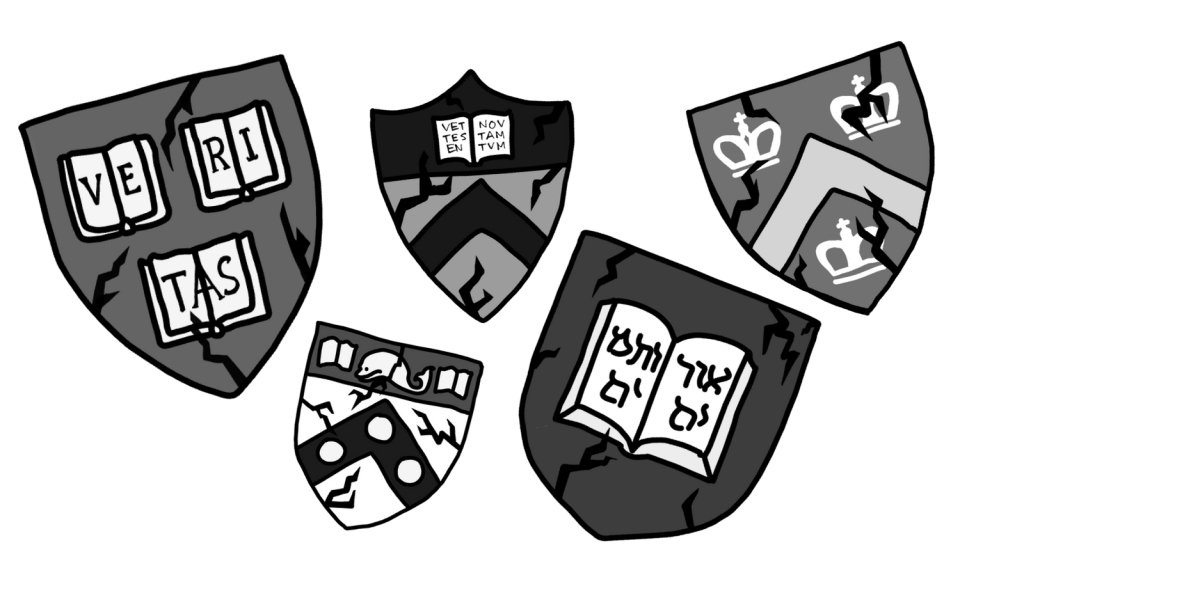Founded in 1636 in Cambridge, Mass., Harvard was the first of many schools to come together and define American higher education: the Ivy League. Holding prestige and vast power through control over policy and possession of vast funds, the reputation they cultivated was built on more than academics and legacy.
The Ivy League was an important social influence, shaping the networks and values of America’s most influential families. In modern day, however, their untouchable and pristine image is under attack, revealing a change in power and prestige within higher education in the United States.
President Trump’s efforts to make changes in top colleges and universities show how vulnerable many powerful schools are to financial and political pressure. According to the Guardian, Columbia University tolerated antisemitism on campus, a claim that sparked national outrage.
The coverage led to the university yielding to demands by the Trump administration as a precondition for restoring $400 million in federal funding. These disruptions to the university’s personal governance and intellectual freedom set a precedent for federal actions affecting policies among colleges.
At the cost of pulling federal funding, many new changes at Columbia were implemented: banning face masks on campus, allowing security to remove or arrest protestors and taking control of the Middle East department curriculum. The implementation of such significant changes to schools as well-established as Columbia indicates a larger shift in the power of top universities. These changes were caused by threats to revoke federal funding, showing a turning point in the power of top schools.
While the majority of the Ivy League schools are unable to take a stand, Harvard, with over $53 billion dollars in endowment and a strong alumni network, has the resources to fight back. This growing divide in resources from the other schools highlights how independence is never guaranteed, weakening the overall image of the institutions.
Such attacks are not just about personal politics – they also reflect an effort to alter the understanding of status and elite power in the United States. To many, the threats and media attention are challenging the weighted prestige of traditional Ivy League schools, and for the first time, public favor is shifting away. In their place, a new group of schools is redefining what higher education could look like.
As elite schools like Columbia have shown weakness from political influence, many start to question if status alone should define academic success. A loss of academic independence among top schools has opened the door for other schools to fill their place. Fewer and fewer students and employers are looking for legacy or prestige alone. Instead, there is a heightened focus on schools offering more practical outcomes, accessibility and opportunities.
Welcome the “New Ivies,” including schools like Northwestern University, Johns Hopkins University and the University of Texas at Austin. As Forbes described in its 2025 collegiate report, these non-Ivy schools are not just outstanding academically – many are listed with a higher SAT average than some traditional Ivies – but are also producing graduates that employers actively seek out.
The rise in the support of “New Ivies” shows a wider shift in how many Americans continue to define educational success. It’s now gauged by real-world results, like demand from employers, lab and research accomplishments, and individual innovation. While the Ivy League has been a recent target of political pressure, the “New Ivies” have escaped for now.
Without the same levels of national attention and media coverage, these schools have had the time to work on what students value rather than picking fights with the government. The “New Ivies” show that their academics and employment success are now being acknowledged by a larger range of firms, contesting the Ivy League’s long-standing hold in such a field.
This is not to say the Ivy League has lost its relevance due to recent developments. Top schools continue to provide unmatched networks and resources, but their domination in higher education is no longer guaranteed.
As an increase of students and employers prioritize affordability and practical outcomes over brand, schools are reshaping their goals to meet such expectations. Offering top-notch academics, growing alumni networks and dependable practical skills, many have begun to rival or even outperform top Ivy League schools.
Former apparent invincibility has been challenged and shifting public interest in favor of equally competitive universities will continue. This raises the question of whether or not the Ivy League will continue to set the standard for what it means to be an elite school in a country where that concept is rapidly changing.


